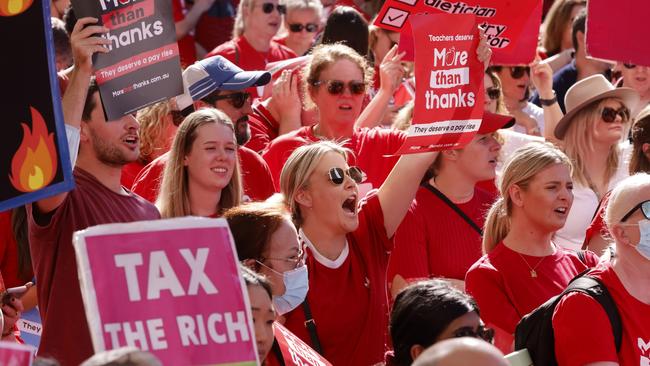Labor IR ‘reforms’ toss stability into the bargaining bin
This is not an enterprise bargaining system, we are looking at more of a back-to-the-future industry wages arbitration mechanism – with bells on.

Reportedly, the phones of key senators are ringing hot, and urgent meetings are being scheduled. The big-ticket item is multi-employer bargaining, and the core issue is whether a business should have the right to refuse to be a part of a Fair Work Commission-arbitrated, multi-employer determination on wages and conditions.
Labor’s proposed reforms come after a rushed and guarded process.
They give us something that is not so much an enterprise bargaining system, as the focus is not on bargaining within enterprises. In practice, we are looking at more of an industry wages arbitration mechanism, with bells on.
If plans come to fruition, future battles will be fought in the FWC, rather than within the workplace. There is a great big bargaining net that will fall on industry, and the focus will shift on to how to escape it, although the escape routes look very narrow.
When considering where we find ourselves today, it is worth reflecting on the words of Laurie Brereton, when minister for industrial relations back in 1993. In the second reading speech of the Industrial Relations Reform Bill 1993, he said “this legislation marks the culmination of the government’s break with the past – our move as a nation from a centralised to a decentralised industrial relations system, to a system based on bargaining at the workplace with much less reliance on arbitration at the workplace”.
Forty years later, we have come full circle. The decentralised system didn’t work for organised labour. Wage growth has stagnated and key constituents are dissatisfied. So the proposed system marks a significant departure from the status quo.
Labor is moving away from a decentralised wages system, back towards a more centralised one. It has said it wants to get wages moving, and this is obviously the way it thinks it can achieve it.
Existing multi-employer bargaining will be substantially expanded, and bargaining will occur in three distinct streams. Which stream a business finds itself in could prove to be another argument, in the FWC, of course.
It is always difficult to predict how a system will operate in practice but, based on the expert opinions of participants, unions will spend more time “roping in” businesses with expired agreements to multi-employer industry bargains, via applications to the FWC.
It is in the FWC where more wage outcomes will be decided, and imposed on businesses across industries.
Employers will have limited means to escape these processes.
Businesses who fall into “intractable bargaining” scenarios will find themselves at risk of compulsory arbitration. This means a commissioner will be determining the quantum of the pay rises to be granted.
All up, it is a more complex system, with more focus on arguing within the FWC, rather than negotiation in the workplace.
Naturally, business groups are proposing amendments. To give the government credit, it has already said it is willing to consider them. However, with the scale of the change outlined, it is difficult to imagine Labor walking too far back from its desired outcomes.
For years now, I have argued that the best feature of any industrial relations system is stability, and that the bargaining system wasn’t broken, and didn’t need to be saved. It was shrinking, organically, and needed to be allowed to find its own low water mark. It was best to leave sleeping dogs lie.
Stability in a workplace relations system is desirable, because the rules over time, become clear. Commissioners make decisions, interpreting the law, those decisions are published, and people study them to work out what is expected. With the passage of time, businesses get to know what is required of them, learn how to navigate the system, and certainty is increased. Compliance becomes easier as time progresses, and efficiencies at the workplace, and within the regulators, are gained.
On the other hand, whenever new legislation is introduced, participants have to start again. First, the negative impact of the legislation is exaggerated, as advisers and law firms scaremonger, and predict the worst possible outcomes.
With new legislation, there is years and years of lucrative work to be had, holding information sessions and seminars, frightening the living daylights out of business owners and managers, about all the things they are now not allowed to do.
With Labor’s proposed changes, we can expect more uncertainty and higher costs for business, and a good five years of higher earnings for industry experts.
All up, it is a shame, frankly, that we find ourselves here. For years now, there have been business groups calling loudly for urgent government action to “save the bargaining system”.
Well, now Labor has answered their call. With its reforms, it does appear it is doing its best to save the bargaining system, but not the interests of the businesses who will be caught in it.



It was “operation shock and awe” as the federal government’s new workplace relations bill hit parliament. The reaction from key business groups has been fierce, with a blizzard of damning media releases.